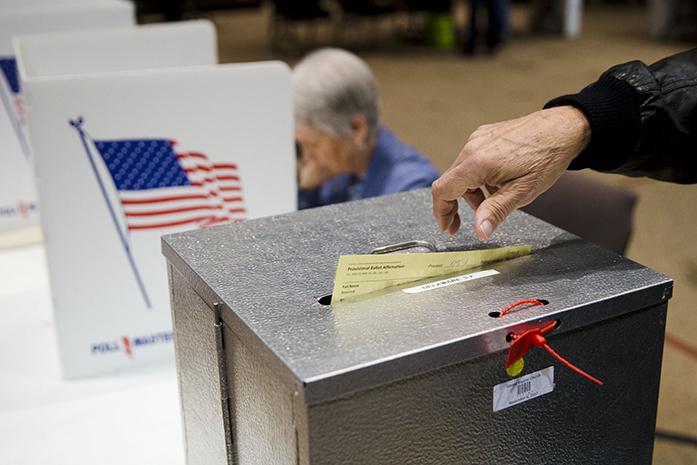Joe Lane
joseph-lane@uiowa.edu
Across the country, as an election rapidly approaches, there is a fight going on to return the right to vote to tens of thousands of U.S. citizens. According to an NPR article from last week, many believe that more than 30,000 Californians and countless other disabled individuals around the country are fighting to regain their right to vote after it was revoked for a variety of disability-related reasons.
While the issue is not exactly black and white, many cases of disabled individuals being prevented from voting are due simply to the individual’s requirement of a guardian or caretaker. This is inexcusable. Obviously, having a caretaker may be an indication of the lack of mental function required to vote, but it cannot be a reason on its own.
Laws surrounding the revocation of voting rights vary from state to state, but in the example provided by NPR, the state of California can revoke voting rights because of the appointment of a conservator or guardian. David Rector, the individual cited in the piece, can no longer speak on his own, but he was able to use his eye-tracking system to say, “I, David Rector, want my voting rights restored, immediately.”
Yet Rector, and many others, still have an uphill battle to fight because in many states such as California, these individuals have to prove not only the ability to cast their own vote but the competence to do so as well. Which is, in itself, a shameful reality these citizens must face.
According to NPR, Jennifer Mathis, the director of policy and legal advocacy at the Judge David Bazelon Center for Mental Health Law in Washington, D.C., said individuals who are tasked with proving their competency to vote can be asked questions such as, “Who’s the governor? Who’s the president? Who’s the mayor? Why do you want to vote? How would you vote on a particular issue?”
But the problem with that is that many non-disabled individuals could not answer those questions if asked, either. Take for example the question of how someone would vote on a particular issue.
How many voters in the U.S. could defend their reasoning for voting in favor of or against the Trans Pacific Partnership? Or how about the use of fracking? Or even the use of tax subsidies? Could every American planning to vote in the 2016 presidential election even explain what affirmative action is?
In all likelihood the answer is a resounding “No.”
Fortunately, not every state has such ludicrous regulations. Iowa’s law on the right to vote, according to the Bazelon Center for Mental Health, reads as follows: “No idiot, or insane person, or person convicted of any infamous crime, shall be entitled to the privileges of an elector.”
The legislation in Iowa goes on to add that the appointment of a guardian is a separate decision from that of voting rights and does not, on its own, preclude an individual from voting.
This argument is not to say that any individual with a mental disability should be allowed to vote. As is addressed by those in opposition to these more loosened voting rights, an individual with a caretaker very well may run the risk of being manipulated and losing her or his vote because the caretaker votes for the candidate of her or his choosing. But in choosing to see the good in people, possibly naïvely, this is hardly a reason to cast a generalized inability to vote onto this group of people.



